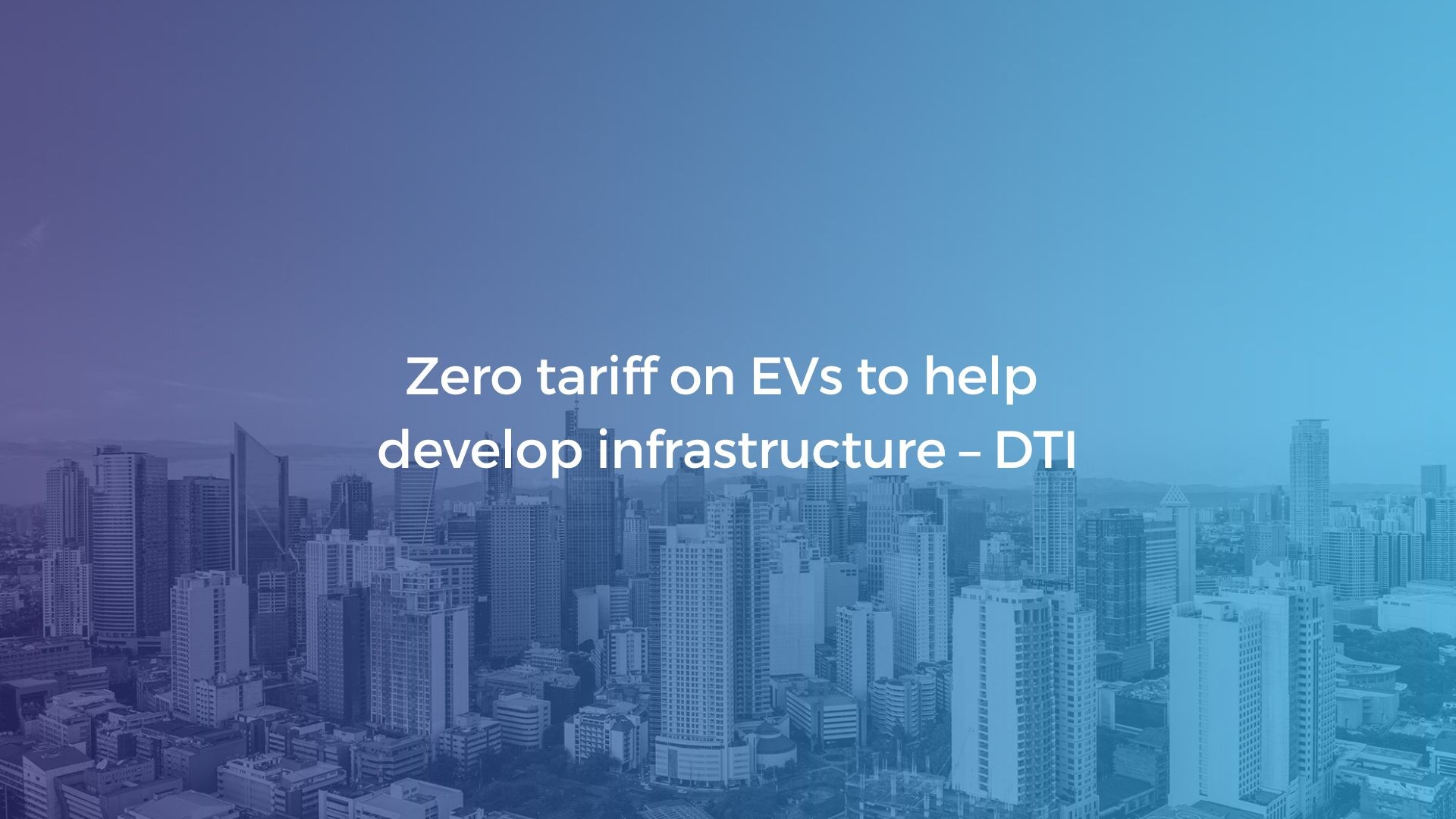
Turehe coverage of only p electric vehicles in a proposed executive order granting zero tariffs on the importation of electric vehicles (EVs) is in line with the goal of developing the EV infrastructure in the country, according to the head of the Board of Investments (BOI).
In a virtual press briefing, Trade Undersecretary and BOI managing head Ceferino Rodolfo said only pure EVs would be included in the proposed EO.
“We want to develop the infrastructure, such as the charging stations. The problem with hybrid is most of them will not need any charging station,” Rodolfo said.
He explained that if hybrid is included in the EO, this may not lead to the development of charging stations. “While with pure EVs, this will also spur investments in charging stations,” Rodolfo said.
Several foreign chambers have earlier expressed support for calls to include hybrid vehicles in the proposed executive order granting zero tariffs on the importation of EVs.
In a recent press conference for the Arangkada Philippines forum, Korean Chamber of Commerce of the Philippines president Hyunchong Um expressed support for the imposition of zero tariffs on EV imports.
He also supports calls of including hybrid vehicles under the planned zero tariffs.
“I think hybrid or a combination will be a good start, with changing the combustion engine to electric cars,” he said as he emphasized the need for setting up the EV infrastructure, particularly charging stations.
Rodolfo emphasized that the goal is for the manufacturing and assembly of EVs in the country.
“Leveraging our abundance of green metals, which we want to further add value to. Then our strength in software development and electronics manufacturing,” Rodolfo said, stressing the goal of the country to cater to the manufacturing and assembly of EVs.
“Consistent with that, the decision is really for just to include pure electric vehicles and not hybrid,” Rodolfo said.
However, he pointed out that the board of the National Economic and Development Authority (NEDA) decided to provide a review clause, adding that after one year of the policy’s implementation, a review will be conducted by the board on the coverage of products in the EO.
In late November, the National Economic and Development Authority (NEDA) Board endorsed an executive order that will temporarily reduce the tariff rates on certain EVs to zero percent to help develop the industry and address the impact of climate change.
“We want to encourage the adoption, the use of e-vehicles because that will address pollution issues and, of course, adaptations to climate change; and we believe that’s the future,” Socioeconomic Planning Secretary Arsenio Balisacan said in an earlier press briefing in Malacañang.
“But more importantly, we want to be part of the value chain globally in this drive to get to these new industries, new growth drivers. And hopefully, we can develop our own industries, and this reduction in tariff is part of that building up of ecosystem,” he said.
The EO also aims to expand market sources and encourage consumers to consider acquiring e-vehicles, improve energy security by reducing dependence on imported fuel, the NEDA said in a statement.
The order will modify tariff rates on certain e-vehicles like passenger cars, buses, mini-buses, vans, trucks, motorcycles, tricycles, scooters and bicycles, including their parts and components. It will reduce the most favored nation tariff rates to zero percent for five years on completely built up units of certain e-vehicles, except for hybrid-type vehicles.
It will also modify tariff on certain parts and components of e-vehicles from five percent to one percent for five years.
According to earlier news reports, the European Chamber of Commerce of the Philippines submitted a position paper to the Department of Energy arguing that the planned zero tariffs on EVs should also cover hybrids.
Australian-New Zealand Chamber of Commerce of the Philippines vice president Bradley Norman highlighted the environmental element of the planned zero tariff on EVs, as it works to bring in EVs into the Philippines as cheaply as possible, in line with efforts to replace fossil-fueled vehicles.
“It will certainly be great if it can be applied to the hybrids as well because there seems to be the bridge between the fossil-fueled motor vehicles to electric vehicle,” Norman said.
Meanwhile, Japanese Chamber of Commerce and Industry of the Philippines Inc. vice president Nubuo Fujii and American Chamber of Commerce of the Philippines executive director Ebb Hinchcliffe also expressed support for the planned zero tariffs on EVs.
Source: https://www.philstar.com/business/2022/12/19/2231654/zero-tariff-evs-help-develop-infrastructure-dti